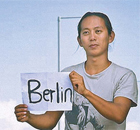Opinion
Hopes for medical reform
(China Daily)
Updated: 2010-02-25 14:15
 |
Large Medium Small |
The pilot program to revamp State-owned hospitals slated for 16 cities this year marks the beginning of the much-debated reform to make healthcare services affordable. It is the first step in the long-term goal of establishing a desirable medical care system that is affordable and exceptional in service.
Similar to the hotly debated reform in the United States, which aims to cut high healthcare costs and realize universal coverage, China's move right now is to turn State-owned hospitals into nonprofit institutions and change the way most public hospitals rely on medicine sales for revenue.
Despite heated debate on healthcare policies in recent years, the reform still remains on the stage of making guiding principles for a general roadmap. None of the documents issued by the central government departments contain any specific measures that can be adopted by State-owned hospitals.
Now the pilot program that will soon go into effect this year will, to a large extent, test how deep the water is for the overall reform nationwide.
For example, to gradually reduce the reliance of public hospitals on the sales of medicines, the pilot program must find out the rate at which prices are rising for medical examinations or other services.
It must also find out what the percentage of government input must be to make up for the deficit due to the loss of revenue from medicine sales.
This is important to relieve patients of the fear that hospitals will make up for the loss by extensively hiking up prices for medical examinations and other services. If the input is too heavy for governments at local levels to bear, it seems possible for hospitals to shift the reliance on medicine sales for revenue onto the reliance on examinations and services. It will be unrealistic that cheaper medical bills can be achieved at the cost of medical workers' income.
| ||||
Another important content of the program is to establish a mechanism for the reasonable distribution of medical resources between different urban hospitals, and between big hospitals and community clinics as well as rural healthcare service centers.
If community and rural healthcare service centers can provide adequate care for minor ailments and act as supplements to big hospitals by offering services to patients, it will greatly reduce the burden on big hospitals on a daily basis.
As far as the management of public hospitals is concerned, much needs to be done to stimulate the enthusiasm of medical workers to do a better job and to improve the quality of service they provide.
For this pilot program to succeed, policy makers and researchers need to keep in close contact with hospitals and even stay there to identify all of the problems. Even if the program goes smoothly, it will take years for the reform to be carried out nationwide.













